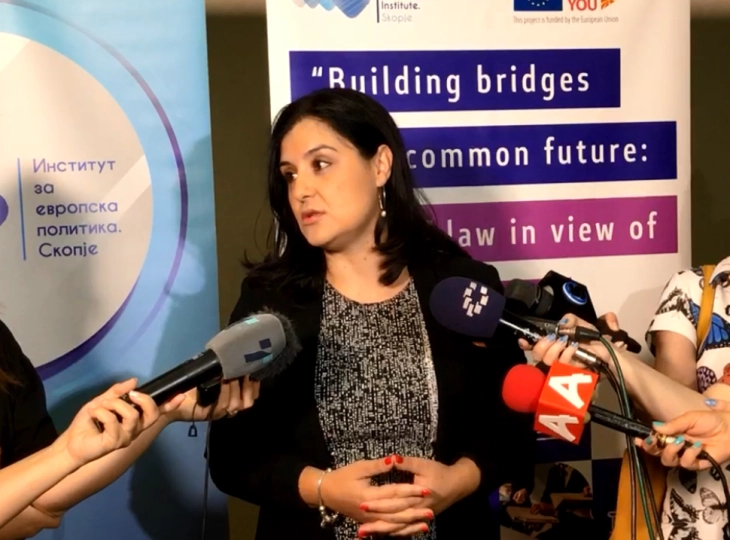Kacarska: Referendum on French proposal - long and exhausting process, but not to be dismissed
- Post By Ivan Kolekevski
- 10:34, 8 July, 2022

Skopje, 8 July 2022 (MIA) – I don’t know how much the citizens, amid this polarized, emotional moment, can determine in a poll whether they are 'for' or 'against' a certain proposal that wasn’t even publicly available and is still surrounded by many uncertainties despite the explanations, said European Policy Institute (EPI) Director Simonida Kacarska on Friday, ahead of the Europeum 2022 Forum – “Western Balkans and EU in 2022: What lies ahead?”
At this moment, said Kacarska, we all have the responsibility to give the Parliament the space necessary for rational discussion of the negotiating framework issues.
Kacarska believes the non-publication of the protocol prevents a portion of the people from judging the situation and is likely the reason for uncertainties and different interpretations.
“It would probably be better for us all if we knew what the documents in the entire package are, and what they look like. Otherwise, we can’t talk about a thorough debate. The Parliament is especially important, because we know that the first step for us, in the current proposal, is the constitutional change, which won’t be an easy step and requires all actors to be involved as much as possible,” said Kacarska, underlining that no consultative process is in vain as long as it is open.
When asked how realistic it is to expect a new modified proposal, Kacarska answered that in this phase, the messaging is "this is it", however, she said, “even if we do continue, we will have to be very careful in the discussion with Bulgaria, above all to avoid politicizing it further”.
“The Parliament probably can adopt conclusions in any case, which would oblige the Government’s next moves. Honestly, it is not very clear which phases this document has gone through, I think there should be a discussion at the European Commission to see which consultative phases the document has gone through,” said Kacarska.
In regards to a referendum as a possible solution, Kacarska said it should be discussed and that option cannot be dismissed as well.
“It wasn’t announced by the Government. However, I will go back to the question regarding the polls, we have to be very careful on how the question would be posed in that context, what the preparation would be like for that discussion, because we have the experience with the Prespa referendum as well, which wasn’t the best in its presentation of European Integration. Probably the most important thing which we would have to realize domestically, is that the European integration and the discussions are done at home, it is not foreign policy and I think this is becoming even more obvious now, we are learning it the hard way,” said the EPI Director.
Friday’s event is organized by EPI and supported by the EU. At the forum, EU actors, along with representatives from the research community, think-tanks, as well as a portion of EU member states’ embassies will discuss how the Western Balkans was treated at the June summit, a number of ideas from member states and the region concerning the future of European Enlargement, will be discussed as well. ad/ik/







